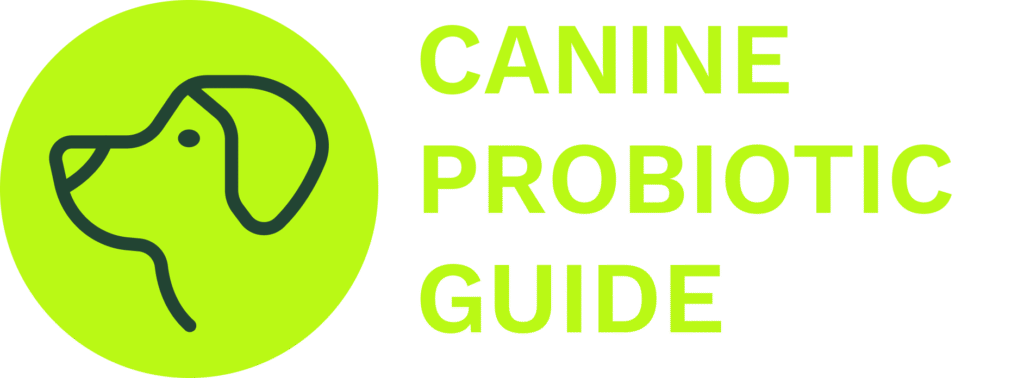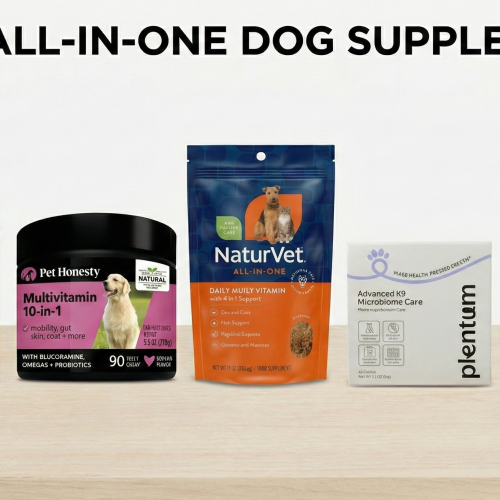Probiotics are generally safe for dogs, but awareness of potential side effects and risk factors is essential for responsible supplementation. While most healthy dogs tolerate probiotics without issue, improper product selection, overdosage, or underlying health conditions can lead to adverse events. This guide outlines common side effects, at-risk populations, and veterinary recommendations to ensure safe probiotic use for your dog.
Common Gastrointestinal Side Effects
The most frequently reported side effects of probiotic supplementation in dogs involve transient gastrointestinal (GI) upset. These include:
- Mild flatulence and bloating. As new bacterial strains colonize the gut, gas production can temporarily increase.
- Soft stools or mild diarrhea. Overgrowth of introduced bacteria or rapid dietary changes may lead to looser stools, typically resolving within 2–3 days with continued probiotic use.
- Transient constipation. In rare cases, changes in gut motility due to microbial shifts can cause temporary decreased stool frequency.
These side effects usually arise when introducing probiotics too quickly or at high doses. To minimize GI upset, start with a low dose and gradually increase to the recommended amount over 5–7 days.
Risk Factors for Adverse Events
While most dogs tolerate probiotics well, certain factors increase the risk of side effects:
- Underlying gastrointestinal disease. Dogs with chronic enteropathies may respond unpredictably to new bacterial strains, potentially exacerbating inflammation or dysbiosis.
- Immunocompromised status. Dogs receiving chemotherapy, long-term corticosteroids, or with congenital immunodeficiencies face a theoretical risk of probiotic translocation or bacteremia. Although rare, cases of sepsis have been reported in immunosuppressed human patients; caution and veterinary oversight are warranted in dogs with compromised immunity.
- Recent antibiotic treatment. Antibiotic-induced microbiome disruption can alter gut barrier integrity. Probiotics are often recommended to mitigate antibiotic-associated diarrhea, but inappropriate strain selection or timing may reduce efficacy or trigger side effects.
Owners should inform their veterinarian of any chronic diseases or concurrent medications before starting probiotics.
Quality and Label Accuracy Concerns
Product quality directly impacts safety. Numerous studies reveal that many commercial probiotics fail to meet label claims or contain uncharacterized organisms. Potential hazards include:
- Incorrect species or strain identification. Some products list human strains unsuitable for canine physiology, reducing efficacy and increasing risk of adverse reactions.
- Low viability or contamination. Products with negligible colony-forming units (CFUs) may encourage overdosage as owners attempt to compensate, increasing risk of GI upset.
- Antibiotic resistance gene transfer. Certain probiotic strains carry transferable antibiotic resistance genes, raising concerns about horizontal gene transfer within the gut microbiome.
To ensure safety, choose veterinary-specific probiotics from reputable manufacturers that provide third-party verification of strain identity, CFU counts through expiration, and contaminant screening.
Immunomodulatory Effects and Unintended Consequences
Probiotics modulate the immune system by interacting with gut-associated lymphoid tissue. While this can enhance immune responses, unintended consequences may arise:
- Immune overstimulation. In dogs with autoimmune diseases or allergic conditions, immune-modulating probiotic strains could theoretically exacerbate symptoms. Although direct evidence in dogs is limited, caution is advised when supplementing dogs with severe atopic dermatitis or autoimmune disorders.
- Allergic reactions. Rare cases of hypersensitivity to probiotic excipients or microbial antigens may manifest as skin itching, hives, or facial swelling. Discontinue use if allergic signs appear and seek veterinary advice.
Probiotic-Induced Dysbiosis and Overgrowth
Introducing probiotic strains can occasionally disrupt the existing microbial balance:
- Monoculture overgrowth. Excessive supplementation with a single strain may allow that strain to dominate, reducing microbial diversity and resilience.
- Synbiotic considerations. Combining probiotics with prebiotics (synbiotics) can enhance colonization, but inappropriate prebiotic doses may cause excessive fermentation, gas, and diarrhea.
Balanced, multi-strain formulations and adherence to recommended dosing minimize the risk of dysbiosis.
Special Populations: Puppies and Seniors
Puppies possess developing immune and digestive systems that respond differently to probiotics:
- Studies show that young dogs may experience more pronounced GI side effects if high-dose probiotics are introduced abruptly. Gradual dosing and veterinary-approved pediatric formulations reduce risks.
Senior dogs often have altered gut permeability and immune function:
- Age-related changes may increase susceptibility to probiotic translocation or immune overstimulation. Low-dose regimens tailored to senior physiology are recommended under veterinary supervision.
Monitoring and Veterinary Oversight
Probiotic safety relies on ongoing monitoring. Owners should:
- Record baseline health metrics. Note stool quality, appetite, weight, and energy levels before starting supplementation.
- Observe daily for changes. Watch for GI symptoms beyond mild, transient upset; persistent diarrhea or vomiting warrants discontinuation and veterinary evaluation.
- Communicate with your veterinarian. Provide details of the probiotic product (strain, CFU count, manufacturer) and any concurrent treatments to enable informed medical decisions.
Veterinary guidance ensures that probiotics complement—not complicate—your dog’s health plan.
Best Practices for Safe Probiotic Use
- Select high-quality, canine-specific products. Prioritize formulations with documented clinical trials in dogs and third-party quality verification.
- Adhere to manufacturer dosing. Avoid “overdosing” in pursuit of faster results; more is not always better.
- Introduce gradually. Begin with half the recommended dose for 3–5 days, then increase to full dose to minimize GI upset.
- Store properly. Follow storage instructions (refrigeration vs. room temperature) to maintain potency and prevent spoilage.
- Review periodically. Reassess the need for continued supplementation every 3–6 months in healthy dogs; long-term use should be based on clear clinical benefit.
Conclusion
Probiotics offer valuable support for canine gut health when used responsibly, but awareness of potential side effects, quality issues, and individual risk factors is crucial. Transient gastrointestinal upset represents the most common adverse event, while serious complications remain rare when selecting high-quality, veterinary-tested products and following recommended dosing protocols. Always consult your veterinarian—particularly for at-risk dogs—to tailor probiotic use safely, ensuring your canine companion reaps the benefits without unnecessary risks.






